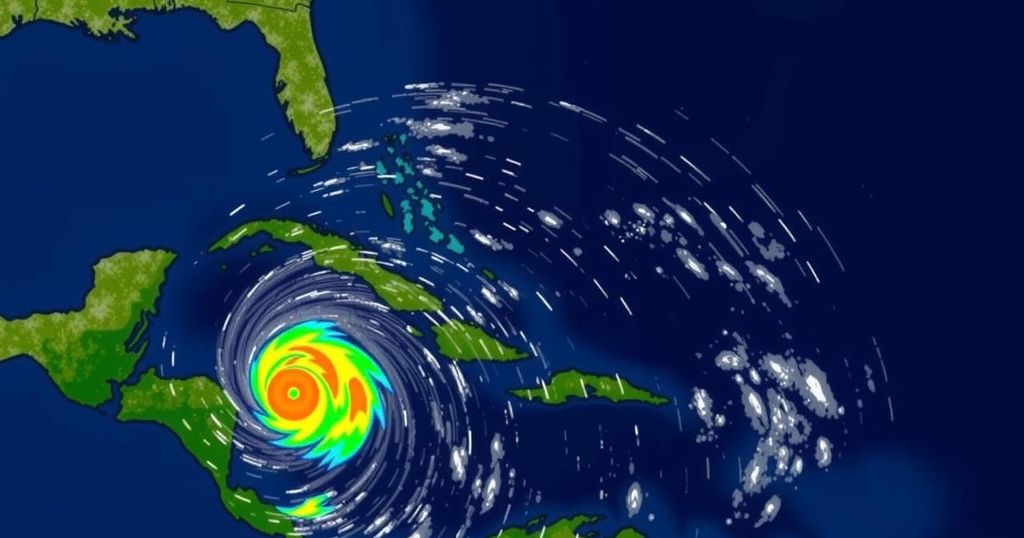Record-Breaking Events of the 2024 Atlantic Hurricane Season
The 2024 Atlantic hurricane season was historic, yielding 18 named storms and 11 hurricanes, including five major hurricanes. Notable storms included Hurricane Beryl, the earliest Category 5 hurricane, and Hurricane Helene, the deadliest since Katrina. Hurricane Milton made waves with its rapid intensification and marked a record of three simultaneous hurricanes in October. Late-season Hurricane Rafael highlighted the busy nature of the season, producing a total of seven hurricanes after September 25, the most on record.
The Atlantic hurricane season of 2024 concluded with unprecedented activity, affirming the predictions of meteorologists regarding its potential intensity. Propelled by exceptionally warm sea-surface temperatures and the absence of El Niño influences, a total of 18 named storms emerged, surpassing the average total of 14. Among these were 11 hurricanes, including five major hurricanes classified as Category 3 or higher, as reported by the National Oceanic and Atmospheric Administration (NOAA).
While Hurricane Francine was the sole storm to make landfall in Louisiana, four others impacted the U.S., with Helene and Milton causing significant devastation as major hurricanes. Record-breaking events defined this season, notably including Hurricane Beryl, which became the earliest Category 5 hurricane in Atlantic history. After forming off the African coast, Beryl struck Texas and Louisiana, generating severe flooding and power outages.
Hurricane Helene followed, striking Florida as a Category 4 storm with winds reaching 140 mph. It resulted in catastrophic flooding and over 150 fatalities, marking it as the deadliest hurricane to affect the U.S. since Hurricane Katrina in 2005. This season also witnessed Hurricane Milton, which achieved rapid intensification at an astonishing rate, raising questions about the limits of hurricane intensity. Milton’s peak winds reached 180 mph before making landfall in October as a Category 3, resulting in severe tornado outbreaks and heavy rainfall.
A historical milestone was reached when Milton also marked the first recorded instance of three simultaneous hurricanes in October, with the other two being Kirk and Leslie. Hurricane Rafael, although less intense, contributed to the unusually busy late season, maintaining strength in the Gulf of Mexico, an area where late hurricanes had been exceedingly rare.
As indicated by NOAA data, 2024 was significant for the Atlantic, producing seven hurricanes post-September 25, the highest recorded during this late period, thereby continuing the trend of an unusually active hurricane season.
The Atlantic hurricane season typically runs from June 1 to November 30, with historical records assessing the frequency and intensity of such storms. The season is characterized by the interplay of oceanic and atmospheric conditions that contribute to storm formation. In recent years, the impact of climate change has prompted scientists to reevaluate patterns in hurricane activity, particularly concerning sea-surface temperatures and storm intensity. The year 2024, however, was marked by especially warm temperatures and a notable absence of El Niño conditions, resulting in a season that broke several records related to named storms and hurricanes. This analysis systematically revisits the storms of 2024, illustrating their unprecedented nature and catastrophic effects.
The Atlantic hurricane season of 2024 stands out as one of the most active in history, characterized by record-breaking storm formations and unprecedented impacts on affected regions. With 18 named storms and numerous casualties from major hurricanes such as Helene and Milton, this season has raised critical questions about hurricane intensity and forecasting capabilities. As climate change continues to influence storm activity, the meteorological community must adapt its approaches to better predict and manage the impacts of future hurricane seasons.
Original Source: www.nola.com




Post Comment